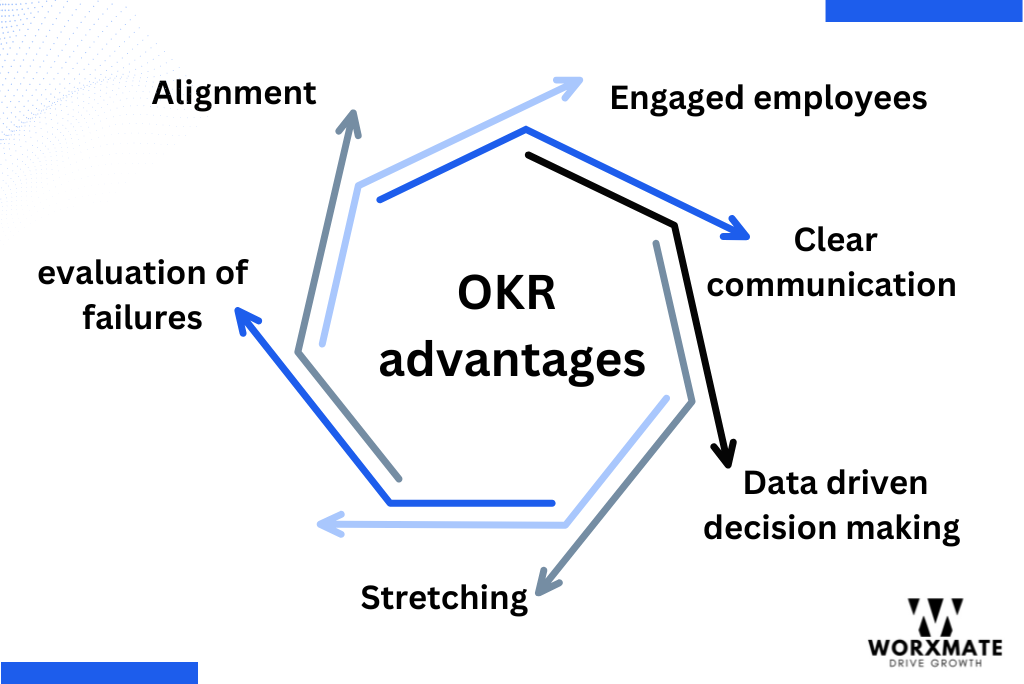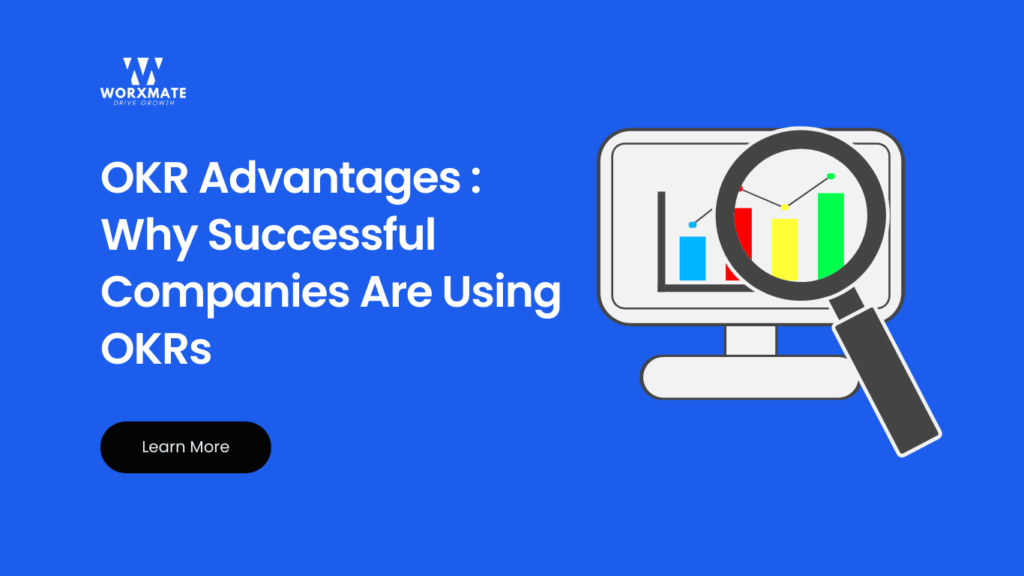Objectives and Key Results (OKRs) are a revolutionary and powerful instrument in the dynamic field of strategic goal-setting frameworks for businesses that seek to foster solid commitment, flawless alignment, and focus on the achievement of ambitious goals.
According to a study more than 97% of those surveyed believe the lack of alignment within a team directly impacts the outcome of any given task or project. OKRs assist in focusing everyone’s efforts on a single goal. Hence improving collaboration and overall efficiency of the organisation.
In this blog we will cover the history of OKRs, the reasons behind why companies implement them for achieving corporate goals, their many benefits, and the advantages of using OKR software.
» Why companies using OKRs
Companies using OKRs as a goal-setting framework to drive alignment, boost performance, and enhance overall success. OKRs provide a structured approach for companies to focus on the “how” and “why” of their goals, not just the “what.” By setting clear Objectives that define the overall goal to be achieved and Key Results that outline measurable mini goals to reach that Objective, companies can break down large goals into manageable steps.
OKR framework helps companies overcome the challenge of setting objectives without a clear plan on how to achieve them. OKRs foster cooperation, communication, and accountability within organizations, ensuring that everyone is aligned towards common goals and working efficiently to achieve them. Companies like Google, Amazon, Adobe, and many others have successfully implemented OKRs to drive growth, improve performance, and create a culture of continuous improvement and success.
» Here are some OKR advantages

-
Engaged employees
OKRs increase employee engagement by enabling ownership, encouraging collaborations, recognition, and aligning personal objectives with the organization’s mission. According to a study, 79% of employees face difficulty at their workplace due to lack of engagement. To achieve better results, OKRs provide people with a feeling of direction and progress through open feedback and growth opportunities, which raises motivation levels and helps in getting better results.
-
Alignment and cross-functional cooperation
A study shows 72% of business leaders believe that cross-departmental working at the enterprise level benefits their employees’ experience and engagement. With the help of OKRs, teams and individuals quickly align with the goals of the business, promoting collaboration and cooperation among various departments.
-
Clear communication
According to the SkyNova 27% of employees quit because of lack of communication. OKRs provide employees with a clear sense of direction by outlining specific objectives and essential results, making sure that everyone is aware of what is expected of them.
-
Data driven decision making
After implementing OKR, teams can access real-time insights into the progress towards organizational goals. This visibility empowers them to make data-driven decisions and timely course corrections when necessary. A study shows that Companies with strong data analytics capabilities achieved 16% higher profitability than those who don’t. Data driven decision making can be a game changer for businesses.
-
Track regular progress towards goals
Tracking goals Increases the likelihood of meeting a goal by 42%. OKRs help organizations track the progress and helps in predicting when they will be reaching the goals. OKRs can be evaluated and modified to allow for flexible adjustments and to ensure teams stay on course towards their goals.
-
Helps in the evaluation of failures
OKRs give businesses a framework for analyzing OKR failures, enabling them to learn lessons from setbacks and make the required improvements for future success.
-
Stretching
By pushing boundaries and promoting continual progress, OKRs inspire individuals and teams to establish challenging but attainable goals.
-
Enhanced Performance of the Organization
Employees who are actively encouraged to collaborate with one another stick to a given task up to 64% longer than peers who work alone. This helps employees to yield better results.
OKRs helps organizations in maintaining focus, aligning employees, and tracking the results, contributing to the overall performance and success of the organization.
» Conclusion
In the highly competitive business environment of today, Objectives and Key Results (OKRs) provide a strong framework for fostering organizational success. Through goal alignment, participation, and the development of an accountability culture, OKRs help organizations reach their highest aspirations.
Moreover, the introduction of OKR software has simplified the administration and execution of OKRs, hence increasing their effectiveness. OKRs are an effective instrument for accelerating growth and fostering long-term success in the business world.
While the implementation of OKR leads towards a successful organisation, there are few top mistakes that needs to be avoid when implementing OKRs.
Discover the OKR advantages that successful companies are using with the best OKR software.
Book a demo today and see how Worxmate can help your business achieve its goals with ease!



